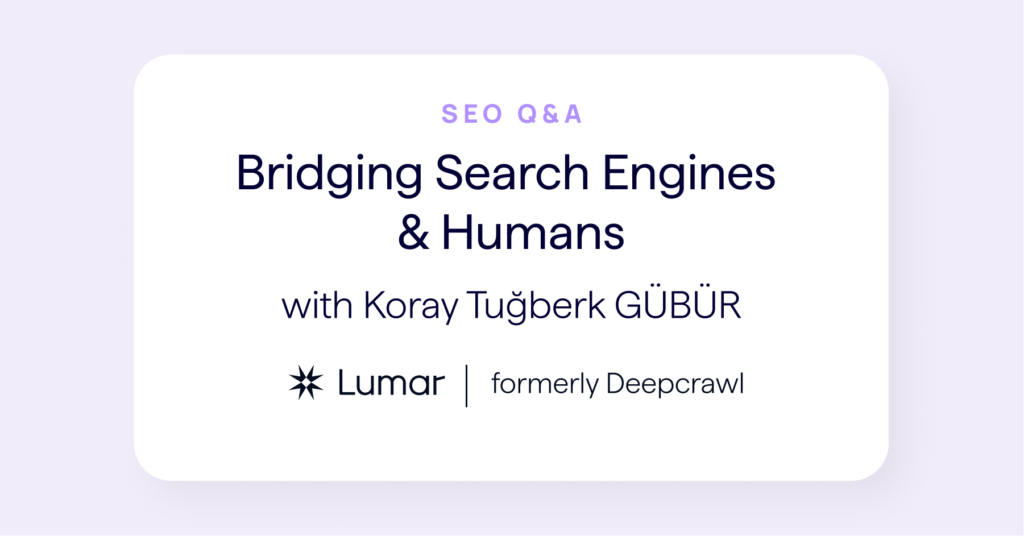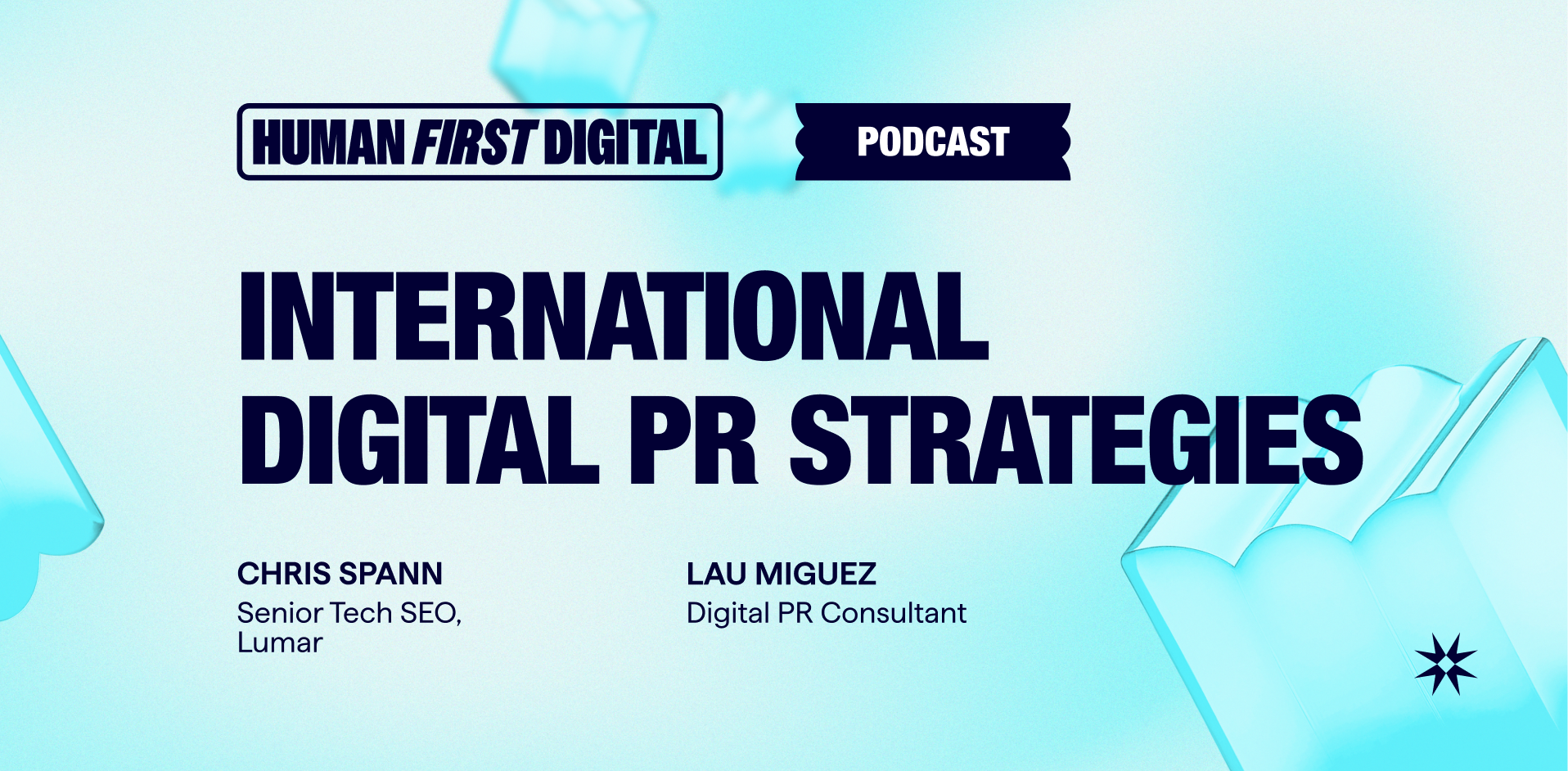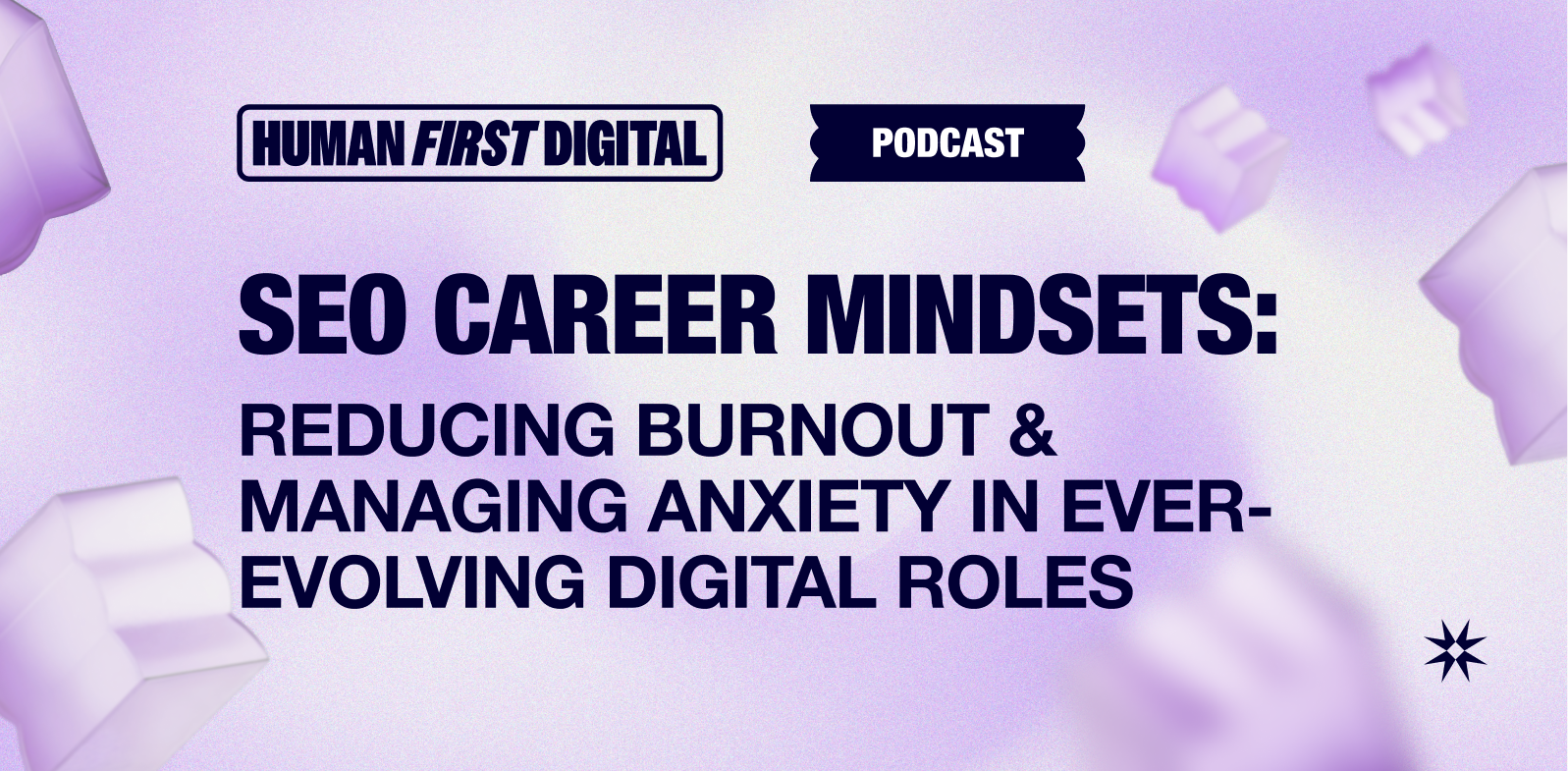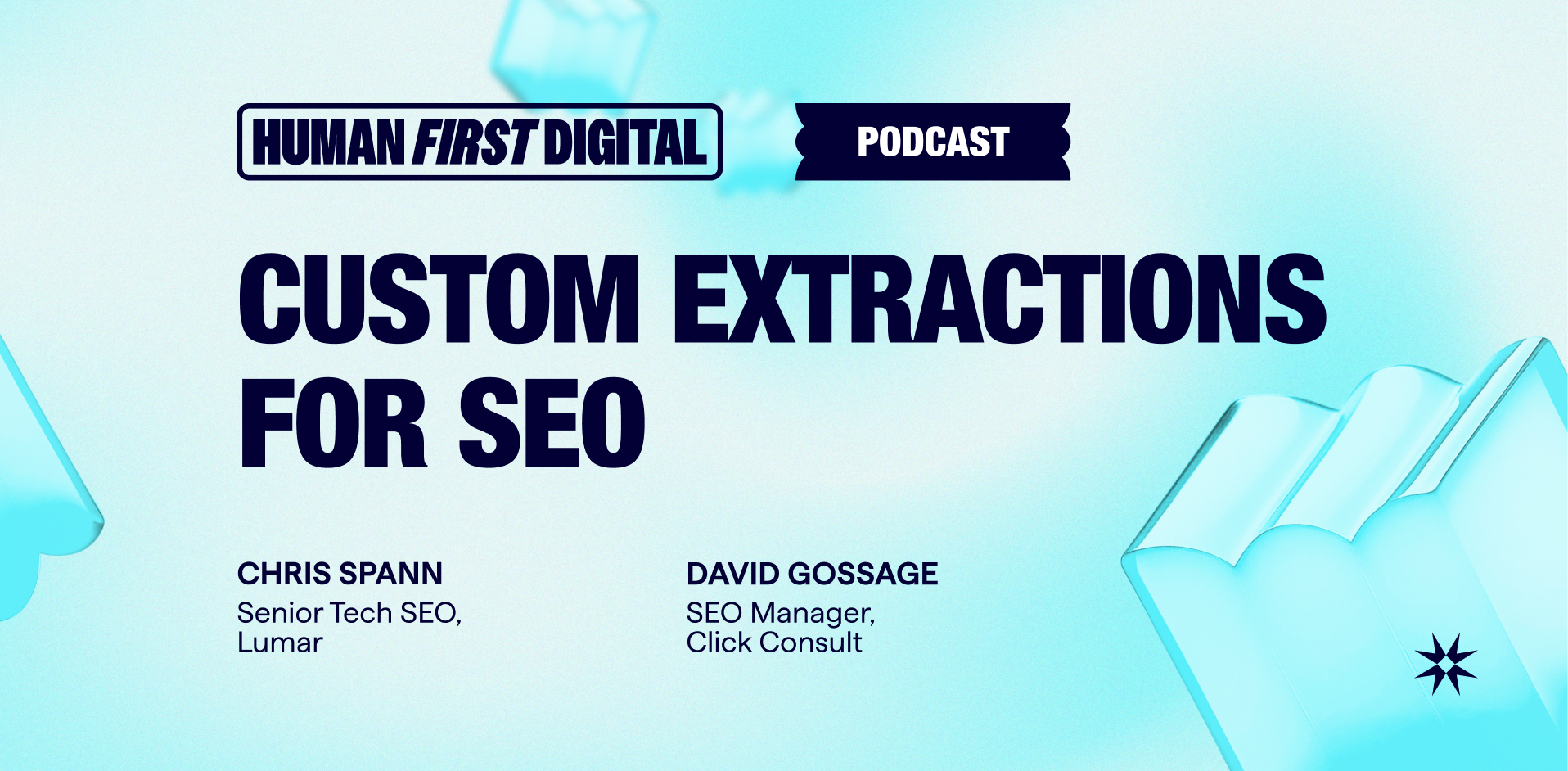The Deepcrawl SEO interview series continues this week with Koray Tuğberk GÜBÜR, founder of Holistic SEO.
Deepcrawl’s Senior Technical SEO, Jamie Indigo, spoke with Koray at BrightonSEO last month in a sprawling discussion of how search engines seek to understand humans and how humans, in turn, seek to understand search engines.
Jamie: Hi! Tell us about yourself — what’s your name and what do you do?
Koray: My name is Koray Tuğberk GÜBÜR and I am the owner and founder of Holistic SEO. I try to focus on every vertical of search and I like being a kind of expert or innovator in SEO. I try my best by spending over 15 hours a day on it, if it’s possible.
Jamie: And the holistic thing is not a lie. Because you have comprehensive, step-by-step guides for everything from Python for data analysis in SEO, to semantic search —
Koray: Yes! People get a little surprised when they see it because it’s everything from technical SEO to local SEO, entities, Python…
Jamie: You’re basically publishing a thesis once a month — I need you to slow down!
Koray: When I do this sometimes, yes, people get surprised, but at the same time it’s one of the most fun things to do because I love SEO. It’s the most fun thing for me, I think.
Jamie: Isn’t it beautiful?
Koray: Definitely. Understanding the search engines — it’s not just about tweaking the website, it’s kind of solving a puzzle. It’s a kind of brain amusement or brain exercise, in a way, and it requires a high level of communication and skills.
Jamie: Yeah, as SEOs, we have to be able to pivot and move and reconsider something in a different context constantly.
Koray: For any other occupation, you always have documentation. In SEO, we also have documentation, but usually, search engines don’t share the latest information with you.
And based on what I can tell in SEO, it is like the secret intelligence services, you know, because you need to understand what the motivation behind a company’s algorithm actually is.
And you need to collect the correct data, you need to take the risk, you need to make people believe in you and how you’re going to implement all these things, by convincing them. So when it comes to SEO, it is the unification of multiple things. It’s a little bit stressful.
Jamie: You’ve often got to convince multiple people to be able to make even a little bit of an adjustment in SEO… and once they see what the investment would be, you just have to be like, “believe in me.”
Koray: Yes. And this is a great feeling because, after a point, I know many SEOs that create a kind of special relationship between themself and the client. When I look at SEO projects, it’s not like mechanical projects; it requires emotional connections with lives as well.
Because it’s not always possible to get all of the clear data, sometimes you need to use your talent to infer things and dynamically collate historical data from past experiences or past case studies on other projects — and you need to integrate all of them into your unique situation. It’s one of the best occupations on this planet. I love it.
Jamie: You just gave your first talk at Brighton SEO, and it was about the same thing, about search engines and the human connection. Tell me everything about this.
Koray: I usually take an example from Martin Splitt, because Splitt says he’s trying to close the gap between search engine optimizers and developers.
I usually try to close the gap between a search engine engineer and a search engine optimizer. Search engines try to understand the humans and humans — us SEOs, in this context — we try to understand search engines.
So if we, as SEOs, are able to read search engine engineers’ research papers, observations, patterns, and obstacles from their side, we can actually meet a kind of mutual ground.
That’s why theoretical SEO is really helpful. Because when you read the concepts [behind search engines], you start to get that actually, their job is harder than our job!
Jamie: Yes, we have so much faith in these magic black ubiquitous boxes that we carry around and we forget that Google loves code — but code breaks. The human effort that it takes to translate the complexities…
Koray: Definitely. Google actually has more than 1.5 billion lines of code (this is their estimation) — and they also use more than 36 different programming languages. So, I am a kind of developer and I know that even in 50 lines of code, there might be some bugs, there might be some errors.
Jamie: Wait, you’re saying that people don’t beautifully comment and peer review every piece of it before it goes into production? You can’t just open any website and immediately know what it says?
Koray: Yeah, when you try to imagine billions of lines of code, it’s really hard. And imagine you are a Google engineer, and this is your first week, and they put you into a room and they tell you about this problem, there are two billion queries–
Jamie: And is every dependency declared? Are the variables constant?
Koray: Yes!
Jamie: So, writing code — if you’re out there and you’re learning Python or JavaScript or any of that… you’re might feel really confident, but then you’re gonna open someone else’s work and you’re going to try to understand what a basic function does in their work… and you’re just going to wander off into the wilderness and reconsider your life.
Koray: It’s amazing that they’re able to sustain all this technology. It is normal to have bugs. It might be an idiom for me, but they say, “We have millions of baby algorithms,” and I say, actually, “You have millions of baby algorithms, but also billions of bugs.” Because when you have that many algorithms, you have to have some bugs. And fixing these bugs doesn’t bring in that much revenue because they know that the system already works and they don’t focus on individual problems.
Jamie: So even Google has trouble prioritizing tech debt?
Koray: Definitely. Even once in Google’s Search Off the Record podcast… Splitt said, “if we had 500 more developers, we could focus on these individual problems.” I thought, this company has billions of dollars, so 500 developers shouldn’t be that much, but apparently they have some other types of internal prioritizations. Alphabet is a big company.
Jamie: A group of developers is called a ‘merged conflict’ — it’s a murder of crows, but it’s a merged conflict of developers.
Koray: And when we think of all these complex structures in Google’s own internal environment, as an SEO, slowly you start to see that actually they try their best. And of course, they can’t be that open about it all of the time. Imagine you’ve spent billions of dollars on an algorithm and then you give a small team that information and someone starts to exploit it.
Jamie: That’s why we have the Google webmaster team at all. Because people figured out how to exploit the algorithm, and figuring out how to stop them is a constant battle.
Koray: It’s a kind of mind game with Google. And that’s why I understand that they generally don’t answer too many of our questions. If they do that, they could jeopardize their jobs, because the algorithm is a really, really important thing for them.
Jamie: Anything that SEOs can use to optimize can also be used to exploit and manipulate.
Koray: And it also makes Google more of a closed search engine, because when we had Matt Cutts, he would actually explain many more things.
Jamie: And the explanation of PageRank, it set off an industry of algo manipulation
Koray: At the moment, they even don’t use the term “PageRank” that much in the Search Off the Record podcast, they say that it is a “bad word,” and that’s fine. There is a kind of knowledge there.
When we ask a question of the Googlers, “Do you or don’t you use these things? Just tell us,” they usually don’t give the answer. But at the same time, we have many concepts that can be learned from their patterns.
But imagine they never explained PageRank and if today we asked them, “Do you use PageRank? We have seen a research paper about it.” They might say, “No, we don’t use it.” But once they say, “Yes, we use it,” there’s no going back from there. You have given a working concept for search engine optimizers and they will continue to use it for the next fifty years.
Jamie: Yeah, so SEOs will grab something and hold onto it for dear life?
Koray: In a way, because it’s a really hard occupation to analyze these types of companies, and usually I call it “Kremlin logic,” which actually comes from the Cold War. During the Cold War, the Soviet Union was constantly lying about what they were doing, and then the Western countries started implementing Kremlin logic to understand the difference between what the Kremlin says and what it does.
So when you think about Google—what Google says, what Google does—it’s a kind of similar occupation, because if you are in SEO you need to understand how to read their minds. And we, all humans, have the tendency to believe the official, strong positions in our lives, because if we see that someone has a title, and if they say something that is strong media, we tend to believe that. And it’s a kind of weak point in our industry, too, because when you’re in SEO you need to always think in a free way.
Jamie: I hear what you’re saying. I’m going to tie this back to plausible deniability and avoiding exploits.
Jamie: Isn’t there something to be said for the idea that we might simply be using a different schema? What we call something is not what they call it. But that gap also provides a layer of support for them; if we’re not using the same words, they can’t specifically confirm.
Koray: Yeah, definitely. Also, when we think about it, they can’t remember these things. Because last year they performed more than 80,000 search experiments. There are only five days for working in a week, so it actually means they were doing hundreds of search experiments every day. No one can remember it all.
In this context, let’s say you’re an engineer and you can start a free experiment for certain queries. And then let’s say you are an SEO for these queries and keywords, and you can see that your rankings change. It might just be one of the engineers doing a kind of experiment there.
Jamie: Let’s tie that back to the logic at the beginning. We talked about how this is all about providing a human lens and context. We know that Google understands information retrieval, our jobs are based on it, and that they will shift the lens in the context of how they understand a person, what they engage with, what they like or prefer.
We know that if you search for a company name on a Sunday evening, it might give you job postings, because it’s going, “You don’t want to go to work tomorrow.”
That lens [for search] is constantly shifting. And that lens comes between the human’s query and what’s returned by search engines.
And we’re way down the pipeline. So at the end of it, great, I’m very happy to be doing the A/B tests, we have different schemas for different things, but there are levels of chaos in this funnel so far removed from you. Consider these when you look at a hypothesis and you’re going, “Can I execute this in a different way? Should I track different things? Is there a way to track so far down the pipeline?” It’s like we need someone to say, what’s my ROI in fixing this piece of tech debt, how’s it going to impact my rankings? It’s like, we are so far disconnected.
It all ties back to what you were saying at the beginning. We have this thing where Google wants to understand humans and we, as SEOs, want to understand search engines…
Koray: Yes, as SEOs, we’re kind of a bridge between the search engines and the humans. By making websites more understandable to search engines.
At the same time, from time to time, their page actually says that the purpose of Google is basically to become the next Star Trek computer. Google wants to be an ambient presence around the world; they want to be your life coach, or your book-reading friend, and they have some dialogue tools now; they even want to chat with you. In the future, we could see that AI and Google might have some legal problems with these things because it’s not that easy to use all this data freely—because this data also belongs to humans.
At the same time, website owners, content publishers, and search engines—they have a kind of conflict of interest. Google is not created for the content publishers, it’s created for the search engine users.
In the book In the Plex: How Google Thinks, Works, and Shapes Our Lives (by Steven Levy), he gives a couple of meeting summaries. He wrote that once, Larry Page said that “they already hate Google, so what’s the downside?” He says this after Google decided to create their own laptops and phones. So in a way, when Google sees a challenge, they go for it. And they don’t care whether people will hate them or not, or if it is actually beneficial for the search engine or not.
But that’s why we have people like Rand Fishkin, who is a kind of stronghold against this sort of change.
Jamie: “Caught red-handed” is his infamous example. It comes in this kind of weird area of legal accountability because Google is like, “Well, we outsourced that data.” So they’re the ones that are red-handed. It’s like, “Ah, I feel like that’s well-placed wording by legal.”
Koray: Let’s say you are a Google employee. How can you say, “yes, our founder has actually said that he doesn’t care about your website, but I care about your website!” They’re in a hard place because they’re our friends, they like us, but at the same time, there is a kind of conflict of interest between the search engine optimizers and the search engines themselves, though maybe it is not that obvious in this decade.
Jamie: From a human angle, as SEOs, we request transparency and accountability from search engines in a way that most people can’t. We know the back alleys and the horrors of the internet and we can call malarkey when we see it. So, in some beautiful way, what we do is more important now than ever because people are so dependent on the internet and such a big part of our lives is digital.
For more from Koray Tuğberk GÜBÜR, follow him on Twitter, or find him on Holistic SEO.
Jamie Indigo is also on Twitter — and on Deepcrawl’s Professional Services Team.
Want more first-hand knowledge straight from some of the world’s best SEOs? Check out our full interview series with search optimization experts.



